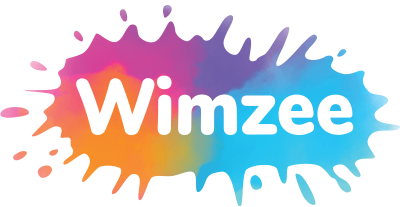Traditional academic performance metrics, like grades and journal impact factors, often miss the mark by focusing too narrowly on numbers. They fail to capture creativity, collaboration, and soft skills, which are vital in today's world. This blog argues for a more holistic approach to education, valuing diverse talents and fostering skills like empathy and adaptability. By broadening evaluation methods, we prepare learners better for real-world challenges, moving beyond mere numbers to embrace the richness of human potential.
Academic metrics—those neat numbers and rankings—often become the shorthand for success in the educational arena. They quantify achievements, offer comparisons, and sometimes, they even guide career paths. But let's take a moment to question their weight. Do these numbers truly capture the breadth of knowledge and the essence of learning?
The Narrow Lens of Traditional Metrics
Imagine a student who thrives in creativity, excels in collaboration, and is a whiz at problem-solving. Yet, this student doesn't quite fit into the narrow confines of traditional metrics. Are their skills any less valuable? For parents, educators, and stakeholders, it's crucial to recognize that grades and rankings might not fully encompass a learner's potential.
The Overemphasis on Numbers
Academic performance metrics and journal impact factors often serve as the gold standard. They quantify achievement and offer a framework for comparison. But these metrics can be misleading. For instance, a journal's impact factor, based on citation counts, may not reflect the true quality or relevance of the research. This emphasis on numbers can prioritize quantity over quality, overlooking the nuance and depth that research should ideally explore.
The Missing Soft Skills
The limitations of these metrics lie in their inability to measure soft skills. Attributes like communication, empathy, adaptability, and emotional intelligence often get sidelined. Yet, these skills are increasingly critical in today's rapidly changing world. They foster collaboration and innovation, essential components in any field.
The Importance of Soft Skills
Soft skills are like the secret sauce in a recipe. They add flavor and make everything work together seamlessly. But traditional metrics don't account for these. A student might be a fantastic team player or an excellent communicator, but if their test scores aren't stellar, these skills might go unnoticed. This oversight can be detrimental, as these are the very skills that drive success in the real world.
Rethinking Academic Success
The challenge lies in finding a balance. While traditional metrics provide a framework, expanding our criteria to include qualitative assessments can offer a more comprehensive view. Emphasizing projects, peer reviews, or even self-assessment can encourage a more holistic approach to education.
A Broader Perspective
By broadening our perspective, we not only support diverse talents but also prepare learners for real-world challenges. It's time to redefine success beyond numbers and embrace the full spectrum of human potential. This means recognizing the value of soft skills and finding ways to measure them effectively.
Moving Towards a Holistic Approach
Incorporating a holistic approach to education involves more than just acknowledging soft skills. It requires a shift in how we evaluate and recognize student achievements. This could involve:
- Project-Based Learning: Encouraging students to engage in projects that require critical thinking and creativity.
- Peer Reviews: Allowing students to evaluate each other's work, fostering collaboration and communication skills.
- Self-Assessment: Encouraging students to reflect on their own learning and growth.
Conclusion
In the end, it's about more than just numbers. It's about recognizing the full potential of each learner and preparing them for the complexities of the real world. By embracing a more holistic approach to education, we can create an environment where all talents are valued and nurtured. It's time to move beyond numbers and embrace the richness of human potential.
Let's redefine what success looks like in education. Let's focus on the skills that truly matter and create a system that values every learner's unique contributions. Because in the end, it's not just about the numbers—it's about the people behind them.




